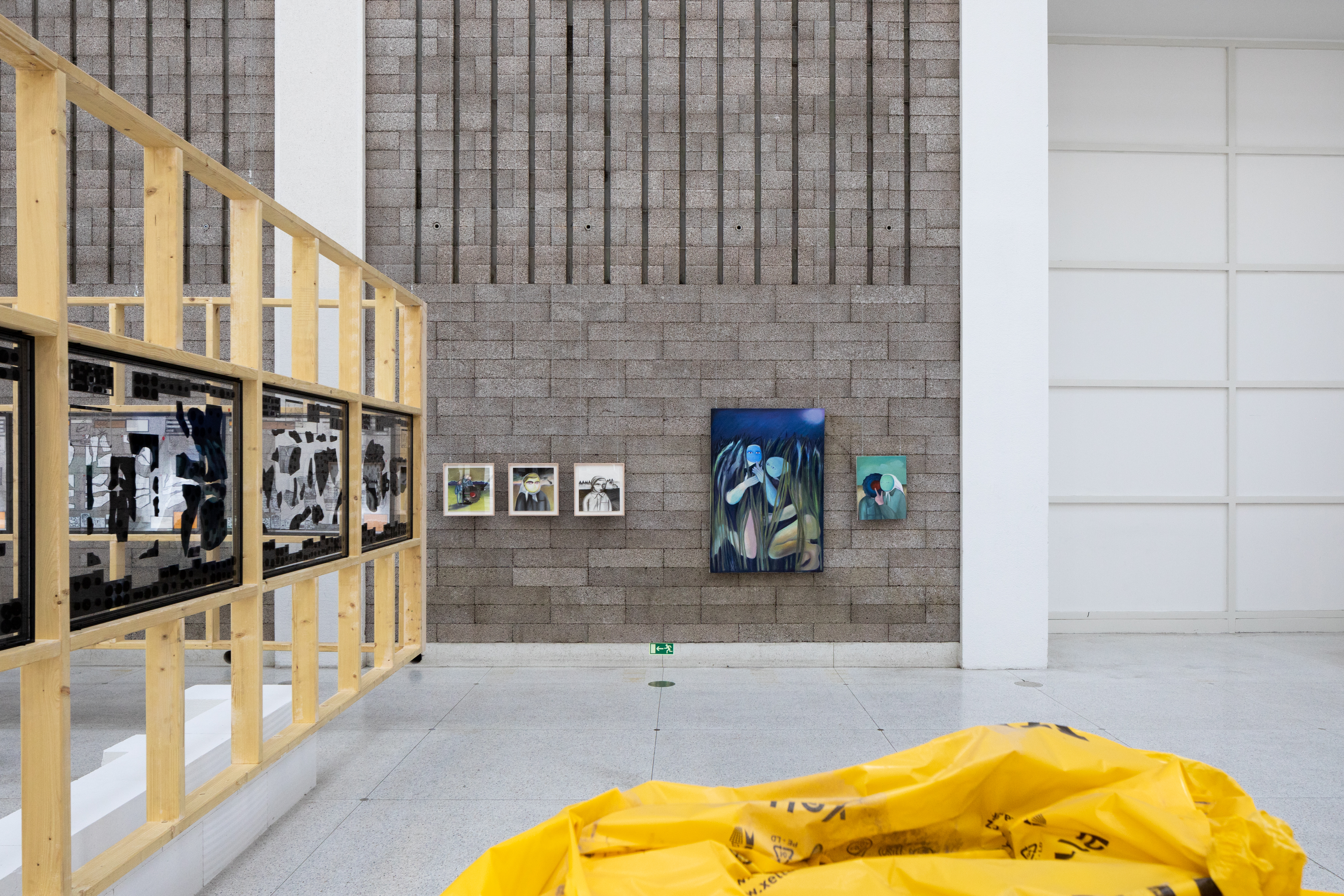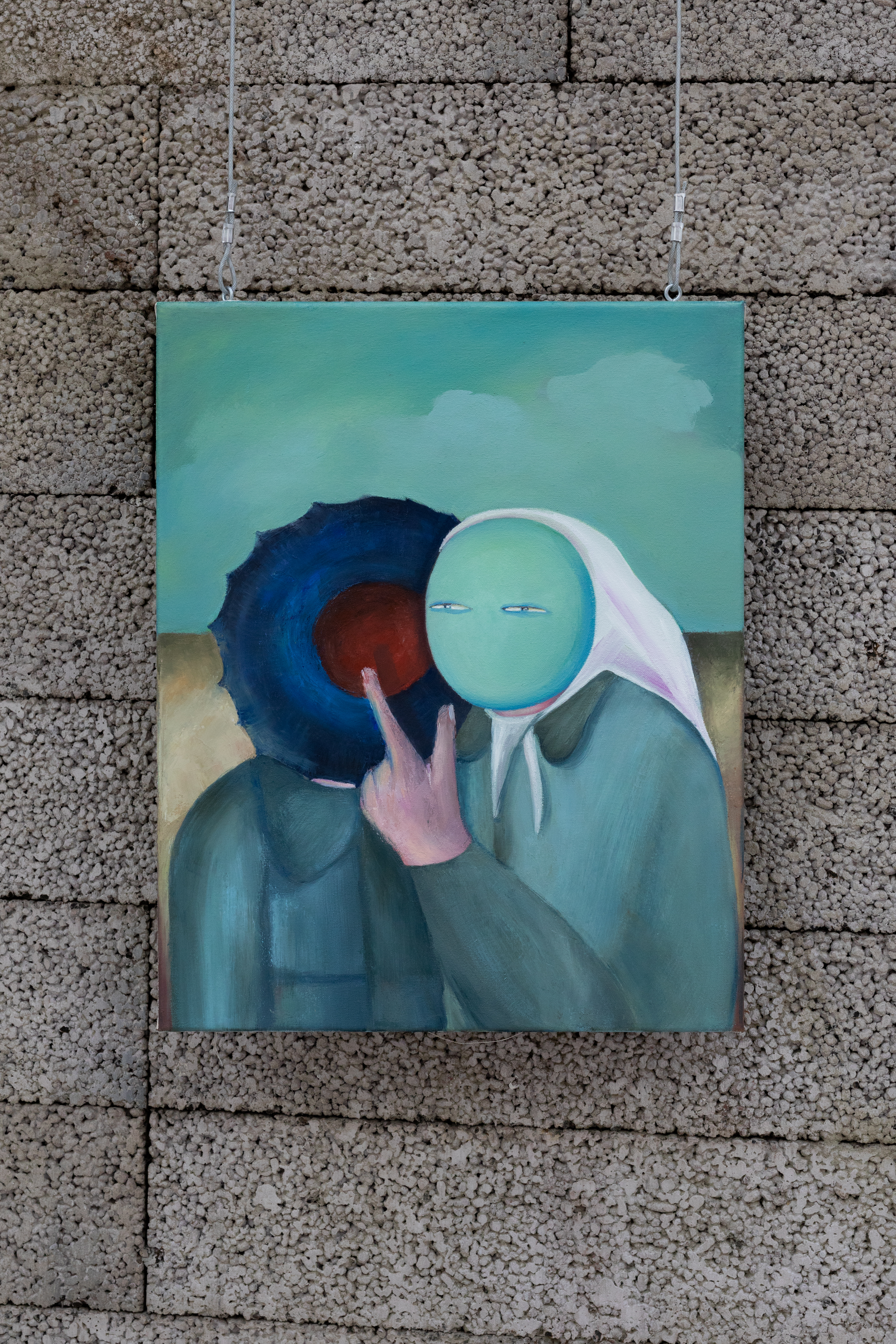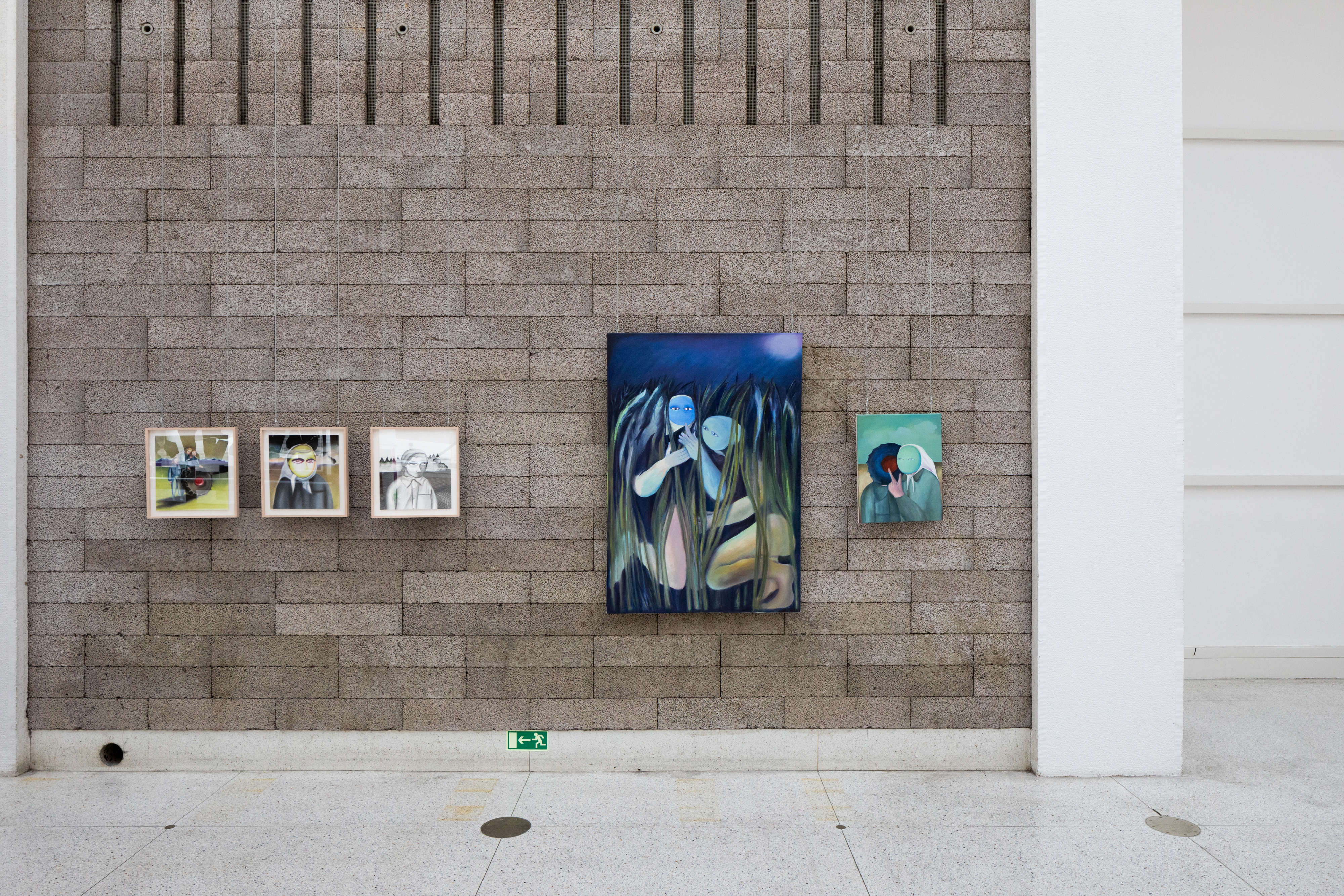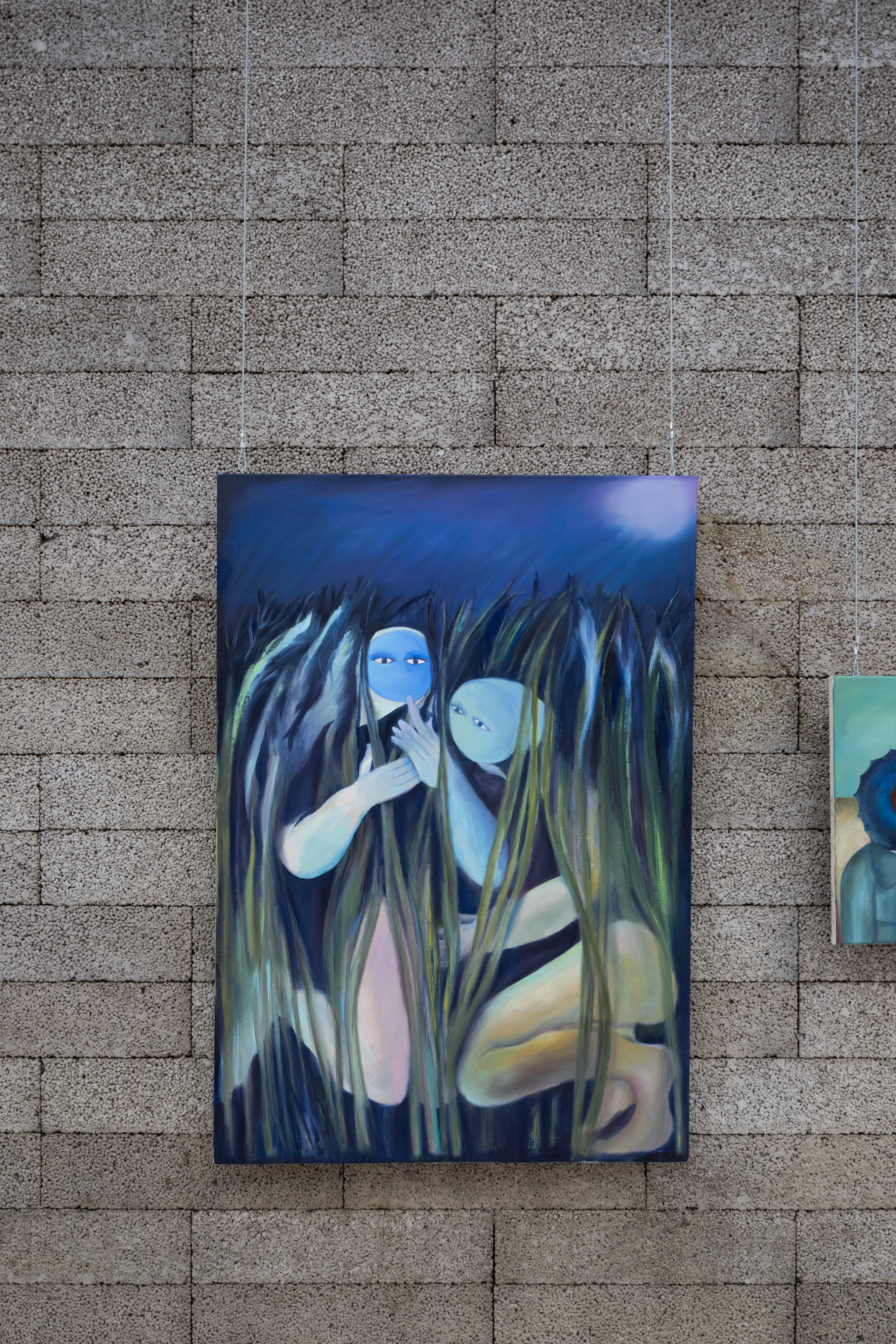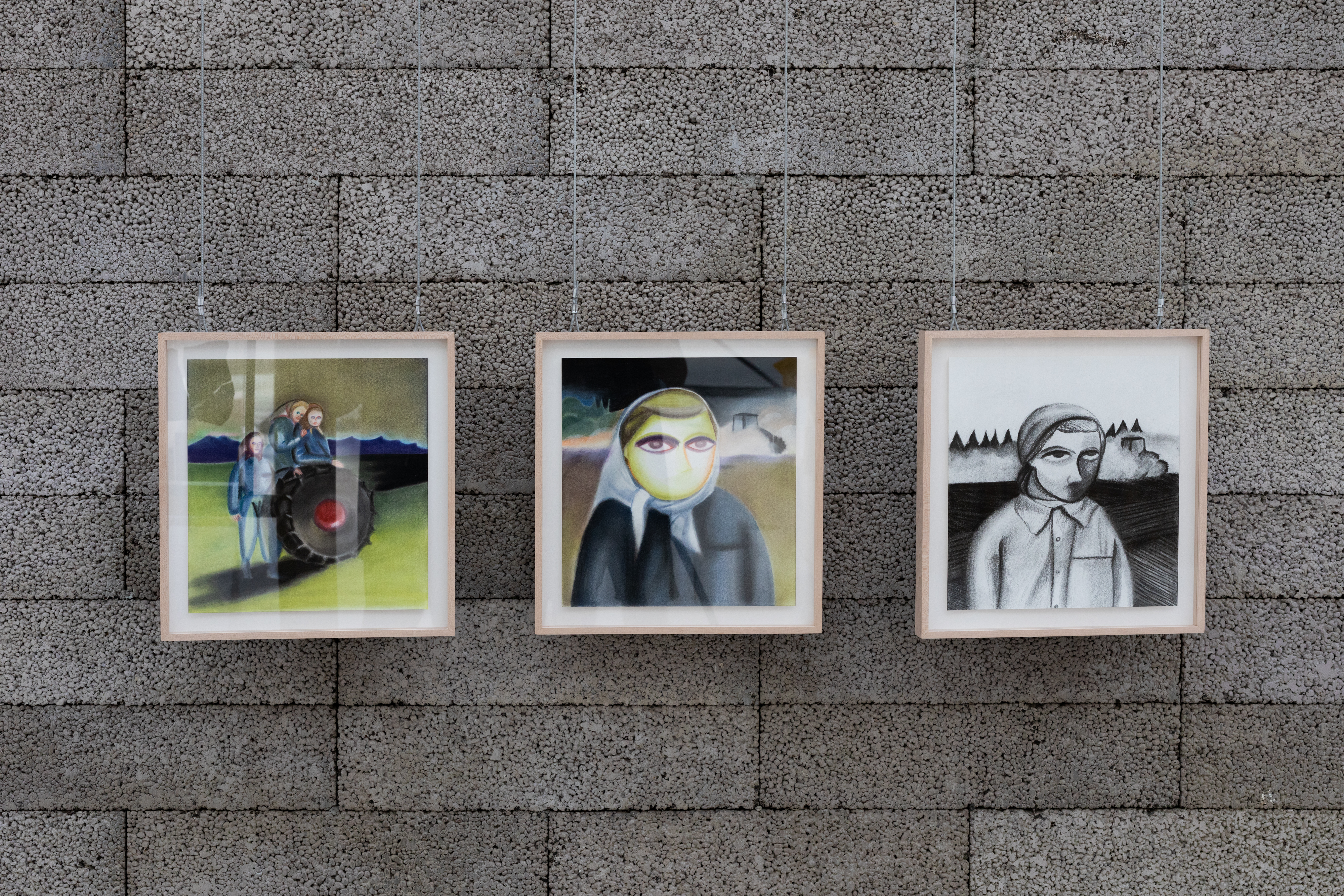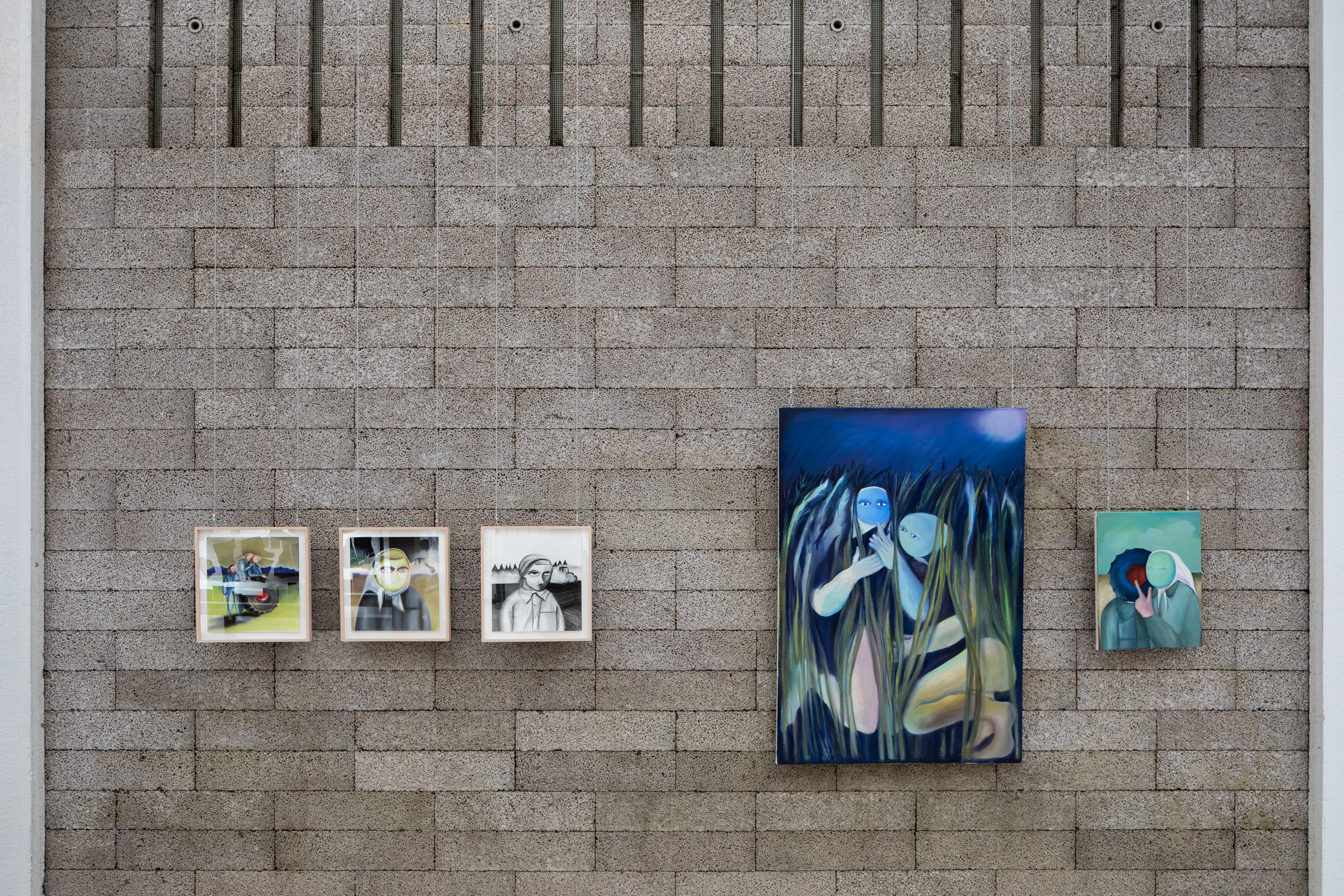Martina Drozd Smutná
Work exhibited in the Trade Fair Palace:
Break / 2023 / drawing / pastel on paper (39 × 41 cm)
Harvest 1 / 2023 / drawing / pastel on paper (39 × 41 cm)
Harvest 2 / 2023 / drawing / pastel on paper (39 × 41 cm)
Love story / 2023 / painting / oil on canvas (40 × 50 cm)
In the Field / 2024 / painting / oil on canvas (130 × 90 cm)
Martina Drozd Smutná – Biennale Matter of Art 2024, National Gallery Prague – Trade Fair Palace (c) Jonáš Verešpej
Martina Drozd Smutná (lives in Prague, born in Kyjov, 1989) presents paintings that are portraits of working class women involved in hard agricultural work. The artist draws them with big eyes, no mouths, in fields with tractors and machines in the dust. They look tired but also mysterious. Do they belong to the socialist past, when hard work and a collective spirit was celebrated? Back then, agriculture and industry started to develop very quickly and the status of people who were involved in production has changed. Probably not. They are painted in a style that is different from the official style of socialist realism. In socialist realist paintings workers and peasants were enjoying their work for the collective effort. The images were full of pathos and many people today think that they have been cheating us. Do they belong to the present? When the socialist society collapsed and many factories were closed down or were privatized we also lost images of labor in the public space. To be a worker, to be a nurse, to be a farmer became less prestigious. The portraits may belong to a different time and space. There is a tension between the joy of work and tiredness, women’s freedom and the discipline of work, collectivity and desire. The paintings question how women’s work is represented in art, how society forces women to look and behave, and how women relate to themselves, their female comrades, and families. Their work is happening during the dark part of the day. Which desires does it bring?
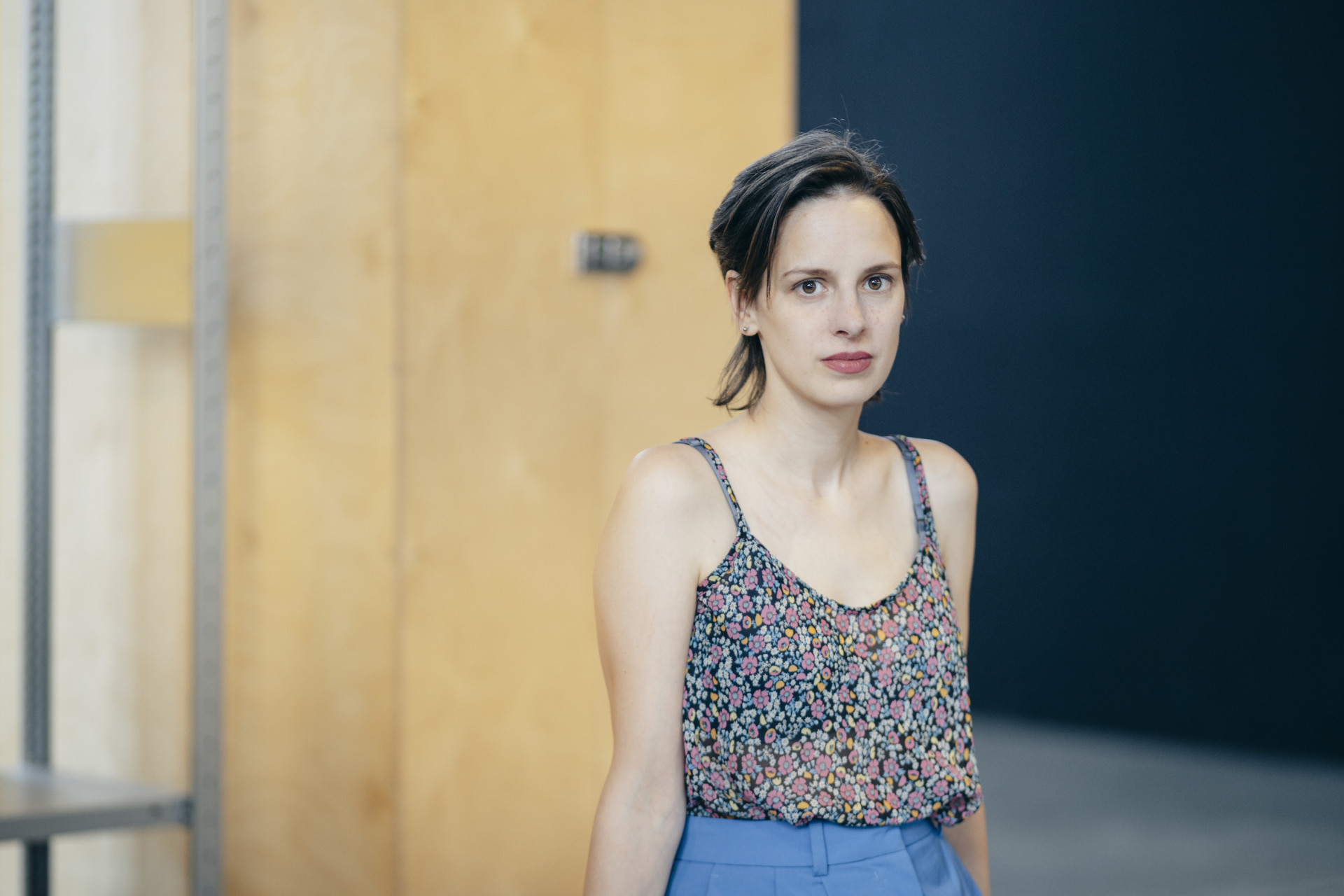
From the artist's archive
Martina Drozd Smutná is a PhD student in the Intermedia Studio of the Academy of Fine Arts in Prague. She has participated in residency programs at the Izolyatsia Cultural Centre in Kiev, the Czech Centre in Bucharest, and Matadero Madrid. Her dissertation focuses on the origins and consequences of the use of gendered evaluation and on the understanding of painting as a masculine discipline. Over the course of her doctoral studies, she has received scholarships at academies of fine arts in Vienna and Munich. She understands her artistic work as a language with which to speak about the intimacy, vulnerability, and everyday nature of personal stories that do not stand on their own but are determined by socio-political phenomena. In her paintings, she creates parallels between historical depictions of the aristocracy and the contemporary urban bourgeoisie and also portrays how family, partner, and professional relationships are shaped by traditional gender roles. She has exhibited in both solo and group shows in the Czech Republic (for example, at Galerie Mladých in Brno, Galerie Dole in Ostrava, and the National Gallery and NoD in Prague) as well as abroad (Kunsthalle Trafo in Szczecin, the Baltic Triennial in Lithuania, EXILE in Vienna, and Arsenal Gallery in Białystok).
